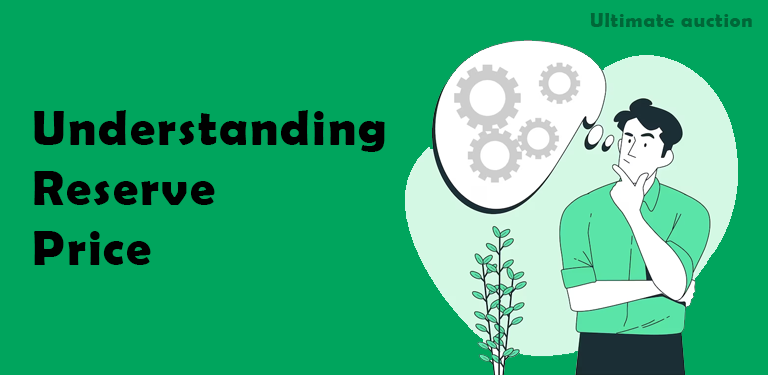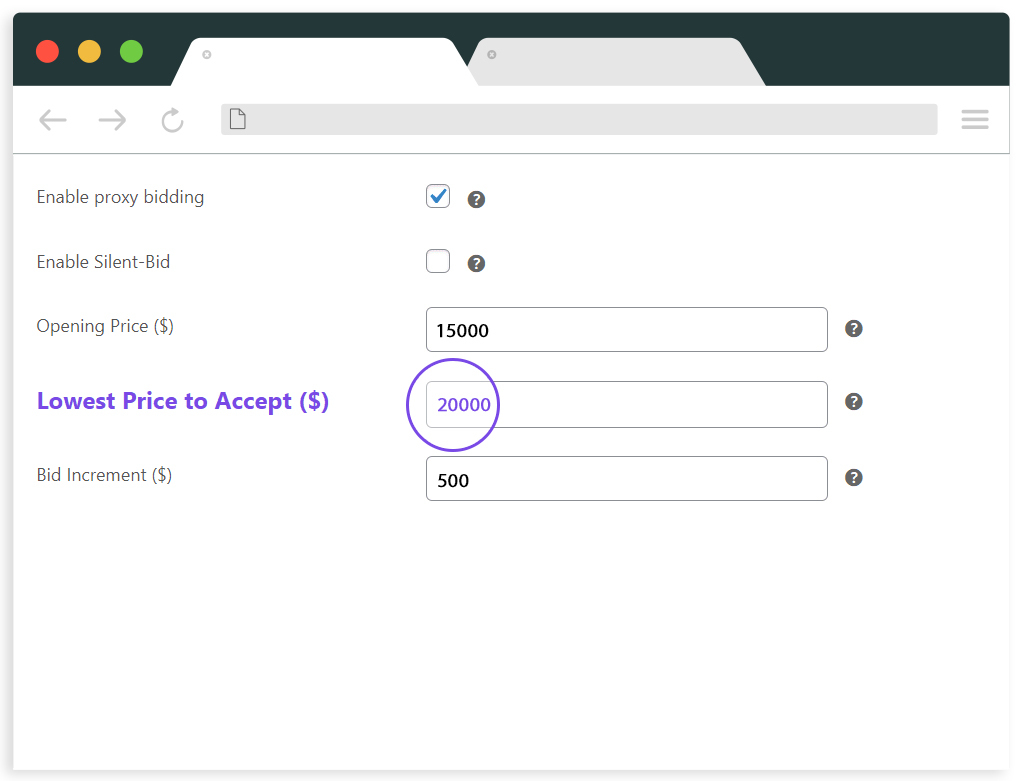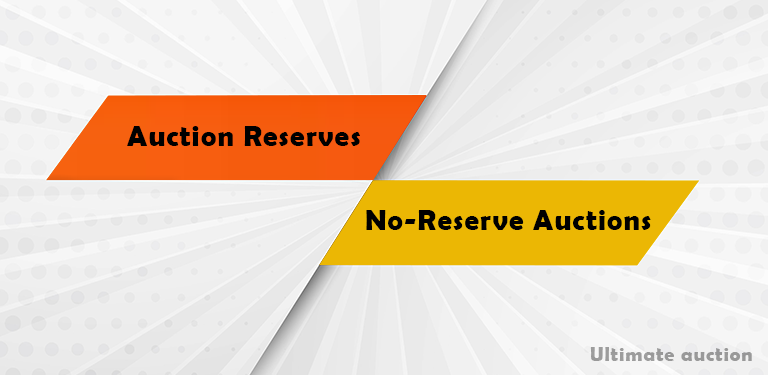What Does Reserve Mean in an Auction?Everything You Need to Know

- What is a Reserve Price? Exploring What Does Reserve Mean in an Auction and What Does a Reserve Mean in an Auction
- Understanding Reserve Price: What Does Reserve Mean in an Auction and What Does a Reserve Mean in an Auction
- Understanding Auctioneer Software and What a Reserve Means in an Auction
- Silent Auctions: How What Does Reserve Mean in an Auction and What Does a Reserve Mean in an Auction Apply
- Empowering Your Auctions with Ultimate Auction Pro
- In a Nutshell: Understanding What a Reserve Means in an Auction
What Does Reserve Mean in an Auction? Exploring what does a reserve mean in an auction
Auctions are an exceptional opportunity combined with excitement, making them a popular way to buy and sell goods. The concept of a reserve price is a crucial component, and understanding what does reserve mean in an auction and what does a reserve mean in an auction is essential for both buyers and sellers. This article will explore the significance of the reserve price and how it can significantly impact the outcome of an auction, offering insights into its consequences for all participants. We will also delve into the subtleties of auctions with reserve prices and how auctioneer software is essential for reserve management.
Looking to setup your Auction Website
Ultimate Auction Pro will do it instantly for you.

What is a Reserve Price? Exploring What Does Reserve Mean in an Auction and What Does a Reserve Mean in an Auction
A reserve price, often called a reservation price, is a critical component of auctions. It represents the lowest amount a seller will accept as the winning bid for their item. Essentially, it ensures that the item will not be sold for less than a pre-established value, safeguarding the seller from unfavorable outcomes.
Seller’s Bottom Line:
The reserve price is the seller’s non-negotiable minimum for accepting a winning bid. It represents the point at which they are comfortable selling the item, ensuring they only sell it for what they’re willing to take.
Protection for Sellers:
Reserve prices protect sellers from unfavorable outcomes. Without a reserve, an item could be sold for much less than its value, especially with limited competition. Setting a reserve ensures the item will sell at an acceptable price.
Encouraging Bidding:
Sellers often set reserve prices slightly higher than the starting bid to stimulate bidding. This motivates potential buyers to engage in the auction to meet or exceed the reserve.
Bidder’s Perspective:
Bidders know the importance of the reserve price. Until the reserve is met, the auction displays “Reserve Not Met,” creating anticipation and competition among bidders who strive to surpass the reserve and secure the item.
Transparency:
While sellers know the reserve, it’s often kept confidential to maintain the excitement of the auction. Some sellers may disclose the reserve in their item descriptions or upon request, adding transparency to the process.
Final Obligation:
When a bidder meets or exceeds the reserve price, the bid becomes binding. The highest bidder must purchase the item at or above the reserve, and the seller must sell it, ensuring a fair and conclusive auction outcome.
Understanding Reserve Price: What Does Reserve Mean in an Auction and What Does a Reserve Mean in an Auction

Reserve prices are a tactical tool to protect an auction’s sellers’ interests. They act as a safety net, keeping goods from being sold for much less than their actual value. For example, reserve prices are hidden on websites such as eBay until the reserve is met; until a bidder meets or surpasses the reserve, the message “Reserve Not Met” is displayed.
The highest bidder must buy the item at the reserve price, and the seller commits to selling it once it is reached. The reserve price is often kept a secret to preserve the thrill and competitiveness of the auction, even though sellers are free to reveal it in their descriptions or upon request.
It’s important to remember that reserve prices can deter some potential buyers because they make it harder to score a deal. A bidder’s uncertainty regarding the lowest acceptable price may discourage them.
Understanding Auctioneer Software and What a Reserve Means in an Auction
Using auctioneer software to manage auctions with reserve prices is essential. It assists in simplifying the bidding procedure, monitoring bid progress, and indicating reserve status.. Since reserve prices are regarded as optional, sellers may occasionally choose to set them for an extra charge.
 Reserve Price Setting in Auction Software
Reserve Price Setting in Auction Software
Here’s a streamlined explanation of its role:
Tracking Bids:
Auctioneer software centrally manages bids, including the highest bid, bidder information, and reserve status in real-time, providing transparency for sellers.
Reserve Status Display:
It shows “Reserve Not Met” until the reserve is achieved, informing buyers of the seller’s minimum price and creating anticipation and competition.
Bidding Facilitation:
The software streamlines the bidding process, making it user-friendly. It can also implement proxy bidding for automatic incremental bids.
Setting Reserve Prices:
Some platforms allow sellers to set reserve prices, often for an additional fee, providing control over the minimum selling price.
Adjusting Reserve Prices:
In specific platforms, sellers can lower the reserve during the auction if needed, adapting to market conditions and encouraging more bidding.
Looking to setup your Auction Website
Ultimate Auction Pro will do it instantly for you.

Auction Reserves vs. No-Reserve Auctions

Auction Reserve:
Minimum Price: When an item is up for auction with reserve price, the seller indicates the lowest amount they will take. The seller’s bottom line, or the least amount they will consent to part with the item, is this reserve price.
The seller is obligated to finalize the sale only when the highest bidder meets or surpasses the reserve price. The seller should only proceed with selling to the highest bidder if the bidding falls within the reserve.
Protecting Value:
A reserve is primarily used to safeguard the owner against selling the item for less than what is considered to be its fair market value. It ensures the item will only be sold for a price the seller is comfortable with.
No-Reserve Auction:
No Minimum Price: A no-reserve auction has no predetermined minimum price or reserve. The highest bidder takes home the item, irrespective of the final price.
Obligation to Sell: In a no-reserve auction, the seller is obliged to sell the item to the highest bidder, even if the winning bid is lower than their initial expectations. All bids must be acknowledged and accepted.
Attracting More Bidders: No-reserve auctions tend to attract a more significant number of participants who are looking to score a deal. Customers know they can buy an item without being held to a minimum price when no reserve exists. The result of this heightened competition may be higher final costs.
There are significant ramifications for sellers and buyers when choosing between an auction reserve and a no-reserve auction. No-reserve auctions foster competition and may result in higher final prices, while auction reserves protect the seller’s desired value but may restrict bidder participation.
When to Set a Reserve?
High-Value Items:
Reserve prices are beneficial for expensive goods. Placing a reserve on an item of significant value protects it from being sold for a small portion of its value. This is particularly crucial for things that have significant sentimental or monetary worth.
Low Starting Bids:
It is beneficial to use a reserve if you wish to attract bidders with a soft opening bid. You can encourage potential buyers to participate in the bidding process by creating an attractive entry point by setting a reserve slightly higher than the initial bid.
Safeguarding Intrinsic Value:
Maintaining the item’s intrinsic value while drawing in bidders with a low opening bid is the primary goal of a reserve. It ensures that the product will be sold for at least a price you consider fair and suitable..
A Successful Auction Experience:
Prudent use of reserves is necessary for a positive auction experience. It lets you attract attention to your item by offering an alluring opening bid and guarantees that the sale price will meet your expectations. This tactic reduces the possibility of disappointment and discontent with the auction’s result.
Special Offer – Limited Time Only!
Rev Up Your Savings: Get 10% off Essential Ultimate Auction Software!
Fill the form and receive directly to your mailbox a discount code.
"*" indicates required fields
Silent Auctions: How What Does Reserve Mean in an Auction and What Does a Reserve Mean in an Auction Apply
Silent auctions provide a distinctive take on the conventional auction model. Items are usually displayed for bidders to view during a silent auction, along with a bid sheet where they can record their offers. Unlike live auctions, an auctioneer can’t call out bids or set the pace. Silent auctions are common in many events, including school functions, galas, and charity fundraisers.
Certain items may still have a reserve price in a silent auction to ensure they sell for at least their actual value. Auctioneer software also plays a crucial role in silent auction software, keeping track of bids, indicating reserve status, and streamlining the bidding process.
Empowering Your Auctions with Ultimate Auction Pro
Having the appropriate tools at your disposal can make all the difference in the fast-paced world of auctions. The revolutionary “Ultimate Auction Pro” software will revolutionize your auction experience. This software guarantees your auctions’ smooth and effective operation with its unique architecture and professional features. “Ultimate Auction Pro” is your secret weapon for success whether you’re a buyer looking for the best deals or a seller trying to maximize your earnings.
Looking to setup your Auction Website
Ultimate Auction Pro will do it instantly for you.

Key Features:
Intuitive Design:
Its simple and easy-to-use interface allows novice and seasoned auctioneers to navigate the platform easily.
Advanced Bidding:
This software has sophisticated features that make bidding exciting and competitive for bidders. It guarantees a dynamic auction process, from proxy bidding to real-time updates.
Customizable Reserve Management:
Easily customize your reserve prices. “Ultimate Auction Pro” enables sellers to effortlessly control reserve prices, guaranteeing that your goods will sell for the prices you want.
Real-time Analytics:
With real-time analytics, you can learn important things about your auctions. To optimize your outcomes, keep an eye on item popularity bid trends and make well-informed decisions.
In a Nutshell: Understanding What a Reserve Means in an Auction
In the world of auctions, reserve prices are crucial because they act as both incentives for bidders and vital protections for sellers. They give sellers a clear profit margin, guarantee defense against sales that aren’t valued fairly, and promote aggressive bidding.
Deciding whether to hold a reserve or conduct a no-reserve auction is essential. No-reserve auctions may draw more bidders searching for better deals, which could raise the selling price. However, for valuable items with low opening bids, it is advisable to use a reserve to protect the item’s intrinsic value and draw bidders with an alluring opening bid.
Looking to setup your Auction Website
Ultimate Auction Pro will do it instantly for you.

Frequently Asked Questions
Get your own Auction Today!
Choose Your Plan
Easy Setup
5 Star Support



